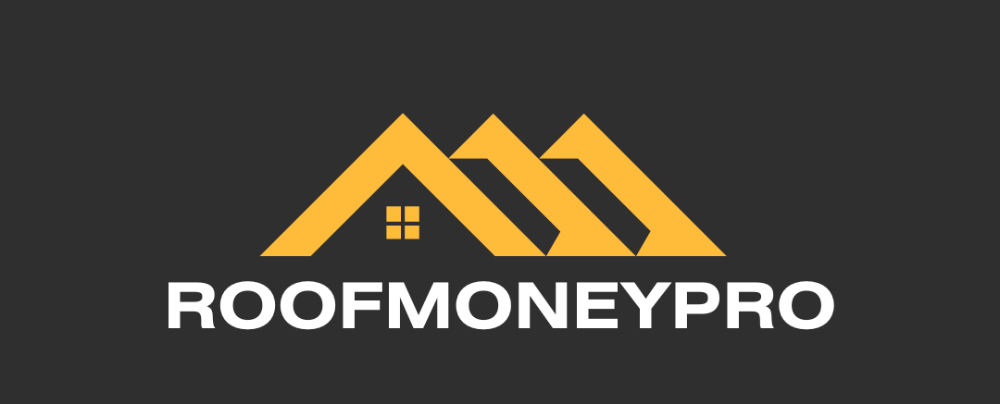The Roofing Professional's Guide to Frugal Living: Save More, Build Wealth Faster
Nov 02, 2025
You just banked a $12,000 commission check from storm season. Two months later, you're wondering where it all went.
Sound familiar?
Here's a reality check: the average household can save up to 30% of their income by adopting frugal living habits. For roofing professionals earning $100K-$250K annually, that's $30K-$75K in savings potential—money that could be building your wealth instead of disappearing into lifestyle expenses.
I come from a long line of frugal men, and I've learned that when I say "I don't have the money," it really means "I don't have the money set aside...for that." There's a difference. And in the roofing industry, where income can swing wildly between feast and famine, mastering frugal living isn't optional—it's essential.
Frugal living isn't about deprivation or driving a beater truck to job sites. It's about making smarter choices that let you save aggressively during boom times and survive comfortably during slow seasons. Imagine having more money for investments without needing to close another roof.
How would it feel to reduce financial stress and actually enjoy the money you're making?
Let me show you how roofing professionals can master frugal living while still maintaining the professional image your business requires.
What is Frugal Living and Why Does It Matter for Roofing Professionals?
There's a huge difference between being frugal and being cheap—a lesson my daughter taught me years ago. She assumed I'd always tell her to buy the cheapest option. That made me stop and think: she was only seeing my actions, not the thought process behind them.
Frugal vs. Cheap: The Roofing Industry Edition
Cheap: Buying the $15K beater truck that breaks down constantly, costing you jobs and creating an unprofessional image. You save upfront but lose money long-term.
Frugal: Buying a reliable $25K used truck that lasts 10 years, looks professional, and rarely needs repairs. You spend wisely and maximize value.
Cheap: Skipping on quality safety equipment to save $200, risking injury that costs you $10,000 in lost income.
Frugal: Buying mid-tier safety gear that's reliable and durable, replacing it only when necessary.
Cheap: Eating the cheapest fast food daily because you're "saving money" on meals, then spending thousands on health issues later.
Frugal: Meal prepping healthy food on Sundays for $5 per meal instead of $15 per restaurant meal, saving $200+ weekly while staying healthy enough to work.
The Roofing Professional's Frugality Challenge:
The roofing industry creates unique pressures:
- Image matters: You need to look successful to close deals
- Income volatility: Huge checks during storm season, slow months in winter
- Physical demands: You're spending money to maintain energy and health
- Peer pressure: Other reps driving $70K trucks and wearing expensive gear
- Stress spending: Long weeks lead to "reward" purchases that drain accounts
Frugal living for roofing professionals means finding the sweet spot: maintaining your professional edge while eliminating waste and building wealth aggressively.
How to Get Started with Frugal Living: The Roofing Professional's Assessment
Step 1: Track Your Actual Spending
Create a spending diary or use an app like Mint or YNAB. As the saying goes: you measure what you manage.
For the next 30 days, log every single purchase:
- That $8 coffee before door-knocking
- The $20 lunch because you didn't meal prep
- The $15 energy drinks during long days
- The $150 celebration dinner after a big close
- The $50 tank of gas
- The $80 bar tab after a tough week
Most roofing professionals discover they're spending $500-$1,000 monthly on completely unnecessary purchases. That's $6,000-$12,000 annually that could be invested.
Step 2: Set Frugal Living Goals (Roofing-Specific)
Don't just say "I want to save money." That's too vague. Set concrete goals tied to your income patterns:
Long-term goals (1-3 years):
- "Save $50,000 for real estate investment down payment by December 2027"
- "Build $25,000 emergency fund to cover 6 months of slow season expenses"
- "Eliminate all consumer debt ($35,000) by June 2026"
Short-term goals (monthly/quarterly):
- "Save 40% of every commission check this quarter ($12,000 target)"
- "Reduce monthly eating-out expenses from $600 to $200"
- "Cut transportation costs from $800 to $500 monthly"
Micro goals (weekly):
- "Pack lunch 5 days this week (save $75)"
- "Skip convenience store stops all week (save $50)"
- "Use 30-day rule before any purchase over $50"
The more milestones you create, the more momentum you build. Every small win compounds.
Step 3: Master "Wants" vs. "Needs" (The Roofing Edition)
This is one of the hardest aspects of frugal living, especially for roofing professionals who are bombarded with pressure to spend:
NEEDS:
- Reliable work vehicle (doesn't need to be brand new)
- Professional clothing that presents well
- Basic safety equipment that protects you
- Fuel for commuting to job sites
- Housing, utilities, insurance, food
- Basic phone plan for business communication
WANTS:
- $70K fully loaded truck when a $30K truck works fine
- Designer work clothes when Carhartt is professional enough
- Newest iPhone when last year's model functions perfectly
- Eating out every meal when meal prep works
- Expensive hobbies and toys
- Status symbols to impress other reps
The 30-Day Wish List Rule:
Here's my system that works incredibly well: When I see something online or in a store that looks cool, I don't buy it immediately. I add it to a wish list.
If it's still on my list after 30 days AND I genuinely believe it adds value AND the timing makes sense, then I consider purchasing it.
Roofing Example:
You see a $3,000 drone for aerial roof inspections. It looks amazing, and other reps have them. But wait 30 days. During that time, ask yourself:
- How many more roofs will this help me close?
- Can I rent one for specific jobs instead?
- Is now the right time, or should I wait until next storm season?
- Will I actually use this, or is it a toy?
Patience = money saved and smarter decisions. Most items on your wish list won't make it past 30 days, and you'll realize you never needed them.
Practical Tips to Save Money on Everyday Expenses
Groceries and Meal Planning (The Roofing Rep's Secret Weapon)
Cook at home and batch-cook meals. This is the ultimate two-fer: you save money AND stay healthy.
Most roofing reps spend $15-$30 per meal eating out during long workdays. That's $45-$90 daily = $900-$1,800 monthly. Meal prepping cuts this to $200-$400 monthly, saving you $500-$1,400 every single month.
Sunday Meal Prep Strategy:
- Spend 2-3 hours every Sunday cooking for the week
- Make 10-14 meals at once (lunches and dinners)
- Pack meals in containers: grab and go Monday-Friday
- Focus on simple, high-protein meals: chicken, rice, vegetables, pasta
Even if you're not Gordon Ramsay, you can master 3-5 simple recipes. Find meals you actually enjoy. Make them repeatedly until you can cook them efficiently.
If cooking creates too much hassle, use meal prep services that deliver for $5-$8 per meal. Still cheaper than $15-$25 per restaurant meal.
Buy generic brands and shop with a list. Store brands are made in the same factories as name brands. Find generic options that match the quality you already buy—you're not sacrificing anything, just making smarter choices.
Cardinal rule of grocery shopping: NEVER GO HUNGRY. When you're starving after a long day on roofs, you'll buy everything in sight. Shop after eating with a specific list.
Make it a game: only buy what's on the list. Forgot your favorite coffee? It goes on next week's list. This simple discipline eliminates impulse purchases that kill your budget.
Take advantage of discounts and loyalty programs. Every dollar counts. Use store apps, clip digital coupons, buy in bulk when it makes sense.
Utilities (Small Changes, Big Savings)
Control the thermostat. This is your biggest opportunity for savings. Don't run AC at 62° all day just to come home to an ice box. Invest in a smart thermostat ($120-$200) that adjusts automatically.
When it's cold, layer up with blankets and warmer clothes before cranking the heat. When it's hot, use fans and stay hydrated before blasting AC.
Savings: $75-$150 monthly = $900-$1,800 yearly
Change energy habits:
- Unplug devices not in use (phone chargers, coffee makers, TVs)
- Switch to LED bulbs (last 10x longer, use 75% less energy)
- Wash clothes in cold water
- Air dry when possible
These seem small, but combined they save $30-$60 monthly.
Transportation (Your Biggest Expense Category)
Transportation is where roofing professionals hemorrhage money. Your vehicle is essential for business, but that doesn't mean you need a $70K truck.
The Vehicle Reality Check:
Expensive option: $70K new truck, $1,200 monthly payment, $200 insurance, $300 gas = $1,700 monthly = $20,400 yearly
Frugal option: $30K used truck (3-5 years old), $500 monthly payment (or paid cash), $120 insurance, $250 gas = $870 monthly = $10,440 yearly
Savings: $10,000 annually by driving a reliable used truck instead of a brand new one.
Yes, you need to look professional. But a clean, well-maintained 2020 Ford F-150 looks just as professional as a 2025 model. Prospects don't care about the year—they care about competence, trust, and value.
Maintenance matters: Regular oil changes, tire rotations, and scheduled maintenance prevent $2,000+ repair bills. Spend $500 yearly on maintenance to avoid $3,000 in repairs.
Consider alternatives when possible:
- Carpool with other reps to training events
- Combine job site visits in the same area to reduce miles
- Use a fuel rewards program at your preferred gas station
Creative Ways to Cut Costs Without Sacrificing Quality
DIY Projects (Roofing Professionals Already Have the Skills)
You work in construction—you can handle basic home repairs, projects, and improvements yourself. Stop paying contractors $100+ per hour for things you could do in an afternoon.
Projects roofing professionals can tackle easily:
- Paint interior walls ($50 in supplies vs. $500-$1,000 hired out)
- Install ceiling fans ($80 fan vs. $300 with installation)
- Replace door hardware and fixtures ($30 vs. $150)
- Basic plumbing repairs ($40 vs. $200 service call)
- Install shelving and organization systems ($60 vs. $300)
- Pressure wash home exterior (own equipment vs. $250 service)
You don't need to be a master craftsman. YouTube has step-by-step guides for everything. Take pride in building and fixing things yourself—it's fun, builds confidence, and saves thousands annually.
I built my own king-size floating bed with LED lights and a sound system. Later I made a floating couch the same way. These projects cost me $400-$500 but would've cost $2,000+ to buy or hire out.
Gifts and celebrations: Make meaningful gifts instead of expensive store-bought items. Build something, create an experience, or give your time. A handmade cutting board or picture frame means more than another generic gift card.
Free or Low-Cost Entertainment
Roofing is demanding. You need to decompress. But entertainment doesn't require spending $200 every weekend.
Free or cheap options:
- Scenic walks, hikes, or bike rides (free)
- Local parks, beaches, or trails (free)
- Community events, festivals, or concerts ($0-$20)
- Home workout routines instead of $50/month gym (free)
- Library books, audiobooks, digital resources (free)
- Pickup basketball, soccer, or sports leagues ($0-$50/season)
- Host game nights or BBQs at home instead of bars ($20 vs. $100+)
Find hobbies and activities that recharge you without draining your bank account. Most roofing professionals default to expensive habits (bars, restaurants, toys) because they're convenient. Convenience costs money.
The Emotional and Psychological Benefits of Frugal Living
Finding Joy in Simplicity
Over time, frugal living shifts from feeling restrictive to feeling freeing. You realize you don't need constant consumption to be happy.
Most of us become habitual consumers, accumulating more stuff than we can even remember buying. How many items in your garage or closet have you used in the past year? Probably less than 50%.
Frugality teaches you to appreciate what you have, eliminate what you don't need, and focus on what actually matters: financial freedom, family time, health, and future security.
Overcoming Societal Pressure
This is the biggest challenge for roofing professionals. Your peer group might drive luxury trucks, wear expensive gear, and show off their earnings. There's internal pressure to keep up.
Here's the truth: most of those reps are broke. They're spending every dollar they make, sometimes more. They look successful on the outside but are stressed about money constantly.
You're playing a different game. You're building wealth while they're building an image.
Having confidence in your choices comes down to knowing your "why." You're doing this for YOU—for financial independence, for options, for freedom from stress, for the ability to retire early while they're still chasing storms at 60.
Building Confidence Through Achievement
Hitting your frugal living goals builds genuine confidence. It's about personal growth, discipline, and self-mastery—not just the bank account.
Every month you save 40% of your income, you prove to yourself that you're in control. Every purchase you delay, every expensive truck you pass on, every meal you prep—these are victories that compound.
Financial discipline bleeds into every area of life: health, relationships, business, personal development. Mastering your money teaches you that you can master anything.
Common Challenges and How to Overcome Them
Challenge #1: Frugal Fatigue
Eventually, you'll hit a wall. The sacrifices feel heavy. You're tired of meal prep. You want the new truck. You're sick of saying "no" while everyone else says "yes."
This is normal and expected.
Solution: Life is about balance. Frugal living isn't about never spending—it's about spending intentionally on things that matter while cutting ruthlessly on things that don't.
Build "splurges" into your budget. After a big commission check, allocate 10% for guilt-free spending. Buy the nice dinner. Get the massage. Take the weekend trip. Enjoy the rewards of your hard work.
Over time, your frugal habits become your new normal. It's like a fitness program: eating less at first feels restrictive, but once you hit your target weight, you're just maintaining. Same with finances—once you build your wealth foundation, frugality becomes effortless.
Challenge #2: Handling Skepticism from Friends and Family
Your friends might not understand why you're not upgrading your truck. Your family might question why you're eating leftovers instead of going out. Other reps might joke about your "old" truck or frugal choices.
Solution: Focus on YOUR why. You're building wealth while they're building debt. You're securing your future while they're living paycheck to paycheck despite big incomes.
Their judgment comes from their own insecurity or lack of understanding. Don't let their opinions derail your financial goals.
You don't need to defend your choices. Simply say, "I've got other priorities right now" and change the subject. Let your results speak for themselves.
In 5-10 years, when you're financially independent and they're still stressed about money, they'll be asking for your advice.
Challenge #3: Maintaining Consistency
The hardest part isn't starting—it's staying consistent month after month, year after year.
Solution: Track your progress visibly. Use a spreadsheet or app that shows your net worth climbing. Celebrate milestones: $10K saved, $25K invested, first rental property purchased.
Remember why you started. When temptation hits, revisit your goals. That $5,000 unnecessary purchase pushes your financial independence back by months or years. Is it worth it?
Stay connected to other frugal-minded people. Join online communities (r/financialindependence, r/leanfire) or find accountability partners in the roofing industry who share your goals.
As Dave Ramsey says: "Live like no one else NOW so later you can live like no one else."
Your Frugal Living Action Plan
Let's recap the key principles:
- Frugality is about value, not deprivation. Buy the right things, not the cheap things.
- Track your spending ruthlessly. You can't improve what you don't measure.
- Set specific, concrete goals. "Save $30K in 12 months" beats "save more money."
- Master wants vs. needs. Use the 30-day rule for all non-essential purchases.
- Cut the big three: Transportation, food, and entertainment are your biggest opportunities.
- Build frugal habits gradually. Start small, celebrate wins, and increase intensity over time.
- Remember your why. Financial freedom matters more than temporary pleasures.
Your First Steps This Week:
- Track every purchase for 7 days using an app or notebook
- Identify your biggest spending leak (probably food, transportation, or entertainment)
- Set one specific 30-day goal (Example: "Save $500 by meal prepping and eliminating restaurants")
- Cut one unnecessary subscription or recurring expense
- Start a wish list for all non-essential purchases over $50
The Roofing Professional's Advantage:
Your income potential is extraordinary. Most people earning $30K-$50K struggle to save anything. You're earning $100K-$250K. If you can save 30-50% of that income, you're investing $30K-$125K annually.
At that rate, combined with smart investments, you can achieve financial independence in 10-15 years instead of 40.
The question isn't "Can I save more?" It's "Am I willing to delay gratification now to live the life I truly want later?"
Frugal living is the bridge between where you are and where you want to be. It's not about being cheap—it's about being intentional, strategic, and focused on building real wealth instead of fake status.


